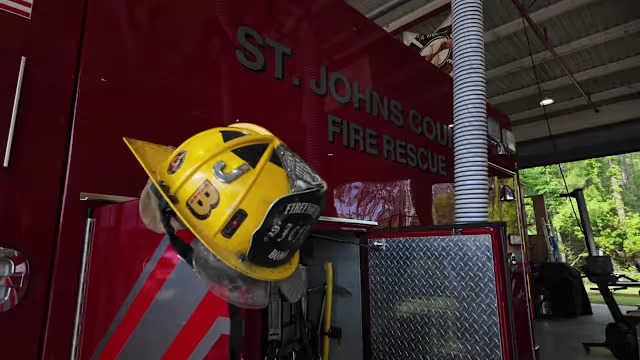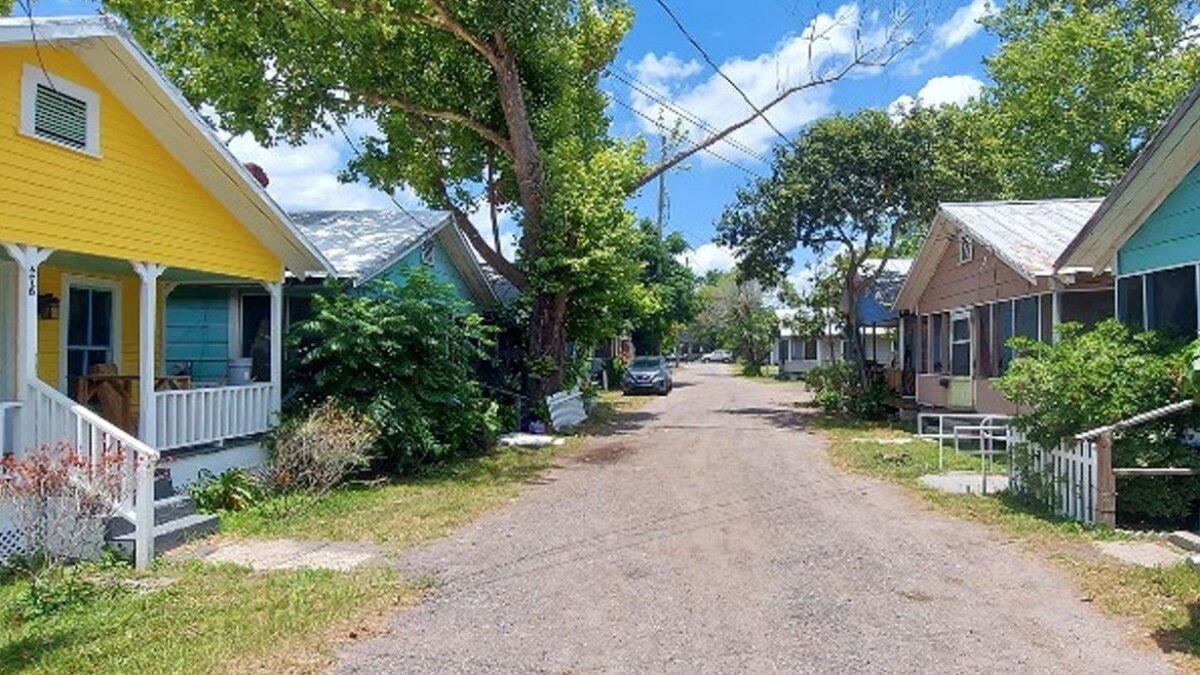St. Johns County’s fire union is concerned that a push among some county commissioners to cut taxes could affect fire services in the growing county.
The county plans to build four new fire stations in the next six years. The one-time costs to build the fire stations is one thing, County Administrator Joy Andrews tells Jacksonville Today, but bringing on the new firefighters, EMTs and paramedics to staff those stations are recurring funds the county uses taxpayer dollars to fund.
Dave Stevens is the president of the local fire union, the International Association of Firefighters Local 3865. He says building so many fire stations in such a short period of time is a huge undertaking from a funding perspective.
With a discussion scheduled next week to set a tentative property tax rate to fund the county’s budget, Stevens says all eyes are on the elected members of the County Commission.
“The reason they’re facing what they are with having to make decisions to make sure public safety is properly funded is years of neglect that were far before they became commissioners,” he says. “Not building fire stations, not keeping up with the growth.”
As St. Johns County’s population has exploded in the past 10 years, the responsibility of firefighters has changed too.
These days, Stevens says, the fire department responds to more battery fires from devices like golf carts and more lightning strikes in areas where trees have been torn down. On top of that, firefighters come along on medical calls too.
What the fire union is pushing for is a change by mid-2028 in the number of hours that firefighters work. By reducing working hours in a week from 56 to 42 — the number the state recommends — Stevens says morale and firefighter health will improve, and the county would have an easier job hiring staff to fill the new stations.
That hiring process can be challenging for staff with certifications that can take years to obtain, like paramedics.
Putting out fires
Retired Jacksonville Fire Rescue Lt. Jason Carpenter is the assistant director of Florida State College at Jacksonville’s fire academy. While both St. Johns County and Jacksonville have indicated that there is not a staffing shortage, Carpenter says the state of Florida overall is experiencing a shortage in paramedics. At the local level, Carpenter says that’s in part because of the lack of teachers for paramedic courses causing a waitlist for students.
“Between the amount of people that have moved to Florida in the past several years,” Carpenter says, “the amount of retirements in the fire service, and there’s also that tidbit that not as many people are seeking this type of career as once was.”
With all of that in mind, County Administrator Andrews says the plan is to begin recruiting new staff before the new stations are even fully built.
“The challenge is going to be the higher-ranked personnel, because you can hire engineers off the street as long as they are trained and they pass our in-house training,” Andrews says. “But the lieutenants, based on our union contracts, all have to be promoted from within.”
Amid discussions with the union to reduce the number of hours for firefighters, Andrews says county staff are keeping in mind the County Commission’s request for a potential rolled-back millage rate and the public’s expectation about their property taxes.
Each year, local elected officials across Florida have to set the rate that property owners pay on their property taxes. That rate is measured in mills, or the number of dollars owed per $1,000 of a home’s value.
Keeping the millage rate the same each year typically means taxes will increase with property values, but the County Commission has expressed that it wants to at least consider a rolled-back rate — lowering the millage rate to keep taxes the same, factoring in increasing property values.
Andrews says that, as of right now, she can’t recommend the County Commission adopt a rolled-back rate for the fire department’s funding.
“We will have to recommend a millage increase for the fire district because of its current operation,” Andrews says. “We’re not even at the union proposal yet. Just to maintain the fire district’s current operation with the consideration of the new expansion and staggered recruitment, we have to have a 0.87 millage increase.”
In recent months, St. Johns County Commission Chair Krista Joseph has said she is eager to find places to cut in the budget to adopt a rolled-back rate, and the chair of the local Republican Party, Denver Cook, has called on the County Commission to do so too.
Joseph has said that St. Johns County needs an approach like “DOGE,” referencing the federal government’s Department of Government Efficiency, a program led by billionaire Elon Musk that recommended slashing the scope of the government by eliminating programs like USAID.
The last time the County Commission adopted a rolled-back tax rate was in 2021, and Andrews says the county is still feeling the effects.
Tax rates are set relative to the previous year, so adopting a lower tax rate one year is something that affects how much money the county gets in property tax revenue down the line.
“The county has to change direction for anything to happen,” says Stevens, the fire union president. “They can’t roll back millage rates. If they do, they just have to be very upfront with the citizens on what services they plan on cutting.”
The St. Johns County Commission will set a tentative millage rate for the coming fiscal year during its next public meeting, starting at 9 a.m. Tuesday, July 22. That meeting will be held in the County Auditorium at 500 San Sebastian View in St. Augustine.
The meeting will also be broadcast live on the county’s website.
An earlier version of this story failed to indicate that Jason Carpenter is a retired fire lieutenant and speaks for Florida State College at Jacksonville and not the Jacksonville Fire and Rescue Department.







